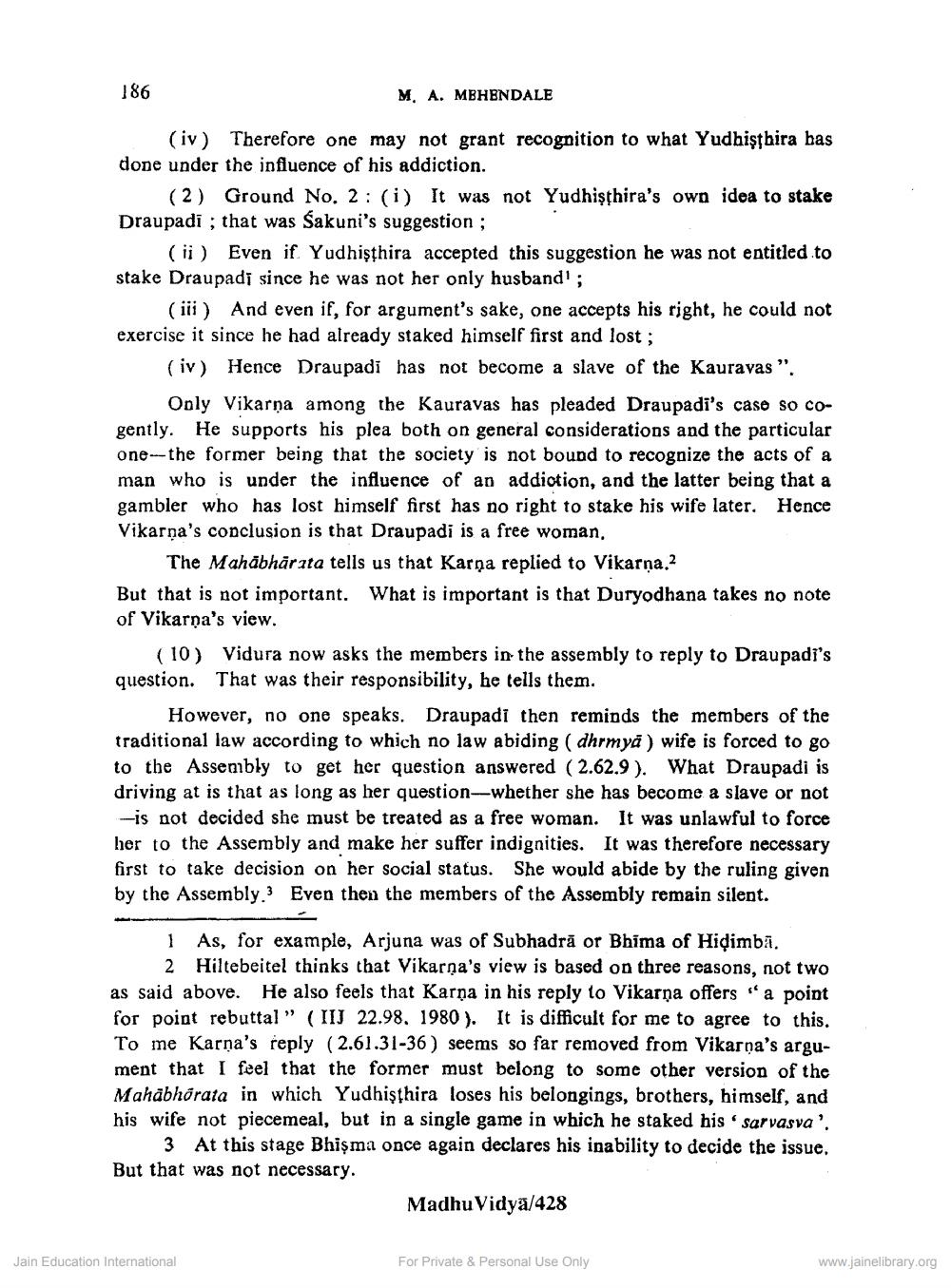________________
186
M. A. MBHENDALE
(iv) Therefore one may not grant recognition to what Yudhisthira bas done under the influence of his addiction.
(2) Ground No. 2: (i) It was not Yudhisthira's own idea to stake Draupadi ; that was Šakuni's suggestion ;
(ii) Even if Yudhişthira accepted this suggestion he was not entitled to stake Draupadi since he was not her only husband';
(iii) And even if, for argument's sake, one accepts his right, he could not exercise it since he had already staked himself first and lost;
(iv) Hence Draupadi has not become a slave of the Kauravas”.
Only Vikarņa among the Kauravas has pleaded Draupadi's case so cogently. He supports his plea both on general considerations and the particular one--the former being that the society is not bound to recognize the acts of a man who is under the influence of an addiction, and the latter being that a gambler who has lost himself first has no right to stake his wife later. Hence Vikarna's conclusion is that Draupadi is a free woman.
The Mahabharata tells us that Karna replied to Vikarņa.? But that is not important. What is important is that Duryodhana takes no note of Vikarna's view.
(10) Vidura now asks the members in the assembly to reply to Draupadi's question. That was their responsibility, he tells them.
However, no one speaks. Draupadi then reminds the members of the traditional law according to which no law abiding (dhrmya ) wife is forced to go to the Assembly to get her question answered (2.62.9). What Draupadi is driving at is that as long as her question--whether she has become a slave or not
is not decided she must be treated as a free woman. It was unlawful to force her to the Assembly and make her suffer indignities. It was therefore necessary first to take decision on her social status. She would abide by the ruling given by the Assembly. Even then the members of the Assembly remain silent.
1 As, for example, Arjuna was of Subhadrā or Bhima of Hidimba.
2 Hilte beitel thinks that Vikarna's view is based on three reasons, not two as said above. He also feels that Karņa in his reply to Vikarņa offers a point for point rebuttal” (IIJ 22.98. 1980 ). It is difficult for me to agree to this. To me Karna's reply (2.61.31-36) seems so far removed from Vikarna's argument that I feel that the former must belong to some other version of the Mahabhörata in which Yudhisthira loses his belongings, brothers, himself, and his wife not piecemeal, but in a single game in which he staked his . sarvasva'.
3. At this stage Bhişma once again declares his inability to decide the issue. But that was not necessary.
Madhu Vidyā/428
Jain Education International
For Private & Personal Use Only
www.jainelibrary.org




